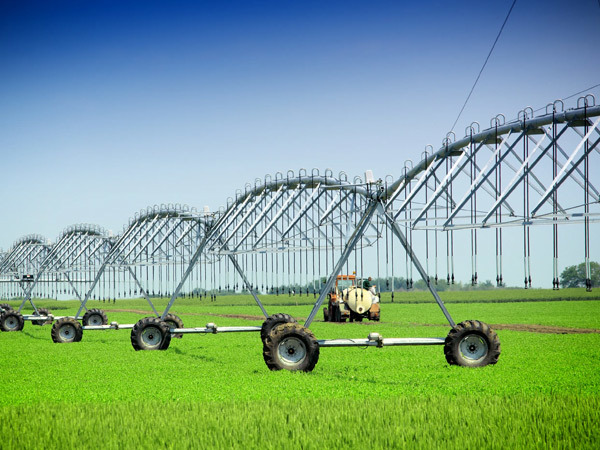Why Every Modern Farm Needs a Center Pivot Irrigation System
Release time:
Oct 12,2025
Why Every Modern Farm Needs a Center Pivot Irrigation System Introduction to Center Pivot Irrigation Systems In the rapidly evolving world of agriculture, efficiency and sustainability have become paramount. One of the most revolutionary advancements in farming technology is the **center pivot irrigation system**. This system not only optimizes water usage but also enhances crop yields and simplif
Why Every Modern Farm Needs a Center Pivot Irrigation System
Introduction to Center Pivot Irrigation Systems
In the rapidly evolving world of agriculture, efficiency and sustainability have become paramount. One of the most revolutionary advancements in farming technology is the **center pivot irrigation system**. This system not only optimizes water usage but also enhances crop yields and simplifies the overall farming process. As we delve into the intricacies of why every modern farm should consider adopting a center pivot irrigation system, we will explore its functionality, benefits, and key considerations for implementation.
The Basics of Center Pivot Irrigation
Center pivot irrigation systems are mechanized systems that rotate around a central pivot point, delivering water uniformly across agricultural fields. This innovative system consists of a long arm, usually mounted on wheeled towers, that pivots around a stationary point, irrigating crops as it moves.
How Center Pivot Irrigation Works
The operation of center pivot irrigation systems is relatively straightforward:
1. **Water Source Connection**: The system connects to a water source, such as a well or reservoir.
2. **Pump System**: A pump moves water through pipes to the pivot point.
3. **Sprinkler Heads**: As the arm rotates, water is distributed through various sprinkler heads, ensuring even coverage across the field.
4. **Control Systems**: Modern systems often employ computer control technology, allowing farmers to program irrigation schedules and monitor water application rates.
Types of Center Pivot Irrigation Systems
There are primarily two types of center pivot irrigation systems:
1. **Standard Center Pivot Systems**: These are the most common and feature a fixed radius and length, ideal for rectangular fields.
2. **Zigzag or Linear Move Systems**: These systems can cover more complex field shapes and are particularly beneficial for irregularly shaped plots, ensuring optimal water distribution.
Advantages of Center Pivot Irrigation Systems
Implementing a center pivot irrigation system comes with numerous advantages that can significantly enhance agricultural productivity.
1. Water Efficiency
One of the most pressing concerns in modern agriculture is **water scarcity**. Center pivot systems are designed to minimize water wastage. By applying water directly to the root zone of crops, these systems reduce evaporation and runoff, ensuring that every drop counts.
2. Enhanced Crop Yields
Consistent and efficient watering leads to healthier plants and, consequently, improved crop yields. By maintaining optimal soil moisture levels, center pivot irrigation allows farmers to grow a wider variety of crops and achieve higher production levels.
3. Labor Savings
Traditional irrigation methods often require extensive manual labor to set up and manage. Center pivot systems significantly reduce labor needs, allowing farmers to focus on other critical aspects of their operations. With automated controls, the need for constant supervision is minimized, making farming more manageable.
4. Cost-Effectiveness
Although the initial investment in a center pivot irrigation system can be significant, the long-term savings are substantial. Reduced water usage, lower labor costs, and increased crop yields contribute to a swift return on investment, making it a financially sound decision for farmers.
5. Flexibility and Scalability
Center pivot systems can be tailored to fit different field sizes and shapes. Whether you have a small farm or a large agricultural operation, these systems can be adjusted or expanded as your needs change, ensuring that your irrigation strategy evolves with your business.
Environmental Benefits of Center Pivot Irrigation
Beyond economic advantages, center pivot irrigation systems also have a positive impact on the environment.
1. Reduced Soil Erosion
Traditional irrigation methods can lead to soil erosion and degradation. By delivering water directly to the plant roots, center pivot systems help to maintain soil structure and reduce the risk of erosion caused by surface runoff.
2. Improved Water Quality
By minimizing runoff and ensuring that water is utilized efficiently, center pivot irrigation contributes to improved water quality in nearby streams and rivers. This is crucial for protecting local ecosystems and maintaining biodiversity.
Key Considerations When Implementing a Center Pivot Irrigation System
Before investing in a center pivot irrigation system, there are several key factors to consider to ensure success.
1. Field Size and Shape
Understanding the dimensions and layout of your fields is critical. Center pivot systems are most effective on circular or rectangular plots. If your fields have irregular shapes, consider a zigzag or linear move system for optimal coverage.
2. Water Availability
Assess the availability and quality of your water source. A reliable water supply is essential for the effective operation of a center pivot irrigation system. Be sure to conduct tests to determine water quality and ensure it meets crop needs.
3. Soil Type and Crop Selection
Different soil types have varying water retention capabilities. Conducting a soil test will help you determine how often and how much water your crops will need. This is crucial for setting up the irrigation system correctly.
4. Budget and Financing Options
While center pivot systems can be costly, exploring financing options and government grants can make them more accessible. Conduct a cost-benefit analysis to determine potential savings and revenue increases.
Future Trends in Center Pivot Irrigation Technology
As technology continues to advance, center pivot irrigation systems are becoming more sophisticated.
1. Smart Irrigation Systems
The integration of smart technology allows for real-time monitoring and adjustments based on weather conditions, soil moisture, and crop health. This reduces water usage while maximizing efficiency.
2. Automation and Robotics
The future will likely see increased automation in the operation of center pivot systems, minimizing human intervention and streamlining the irrigation process.
3. Data Analytics
Utilizing data analytics can help farmers make informed decisions regarding irrigation schedules, leading to optimized water usage and enhanced crop management.
FAQs
1. What is the lifespan of a center pivot irrigation system?
A well-maintained center pivot irrigation system can last between 15 to 25 years, depending on usage and environmental conditions.
2. How much water can a center pivot system apply?
Water application rates can vary based on the specific system and crop requirements, but typical rates range from 0.1 to 1 inch per week.
3. Can center pivot systems be retrofitted for existing farms?
Yes, many center pivot systems can be retrofitted or integrated into existing irrigation setups, making them a versatile option for farms of all sizes.
4. Are center pivot systems suitable for all crops?
Center pivot systems are effective for a wide range of crops, including corn, soybeans, and alfalfa. However, crop-specific irrigation needs should be assessed for optimal results.
5. What maintenance is required for center pivot irrigation systems?
Regular maintenance includes checking mechanical components, ensuring proper alignment, inspecting water lines, and monitoring for any clogs in the sprinkler heads.
Conclusion
In conclusion, the adoption of a **center pivot irrigation system** represents a significant advancement in modern farming. With their ability to enhance water efficiency, boost crop yields, and reduce labor costs, these systems are an essential investment for any forward-thinking farmer. By considering key factors such as field size, water availability, and budget, farmers can successfully implement this technology and pave the way for a sustainable and profitable future in agriculture. As we look to the future, center pivot irrigation systems will undoubtedly play a critical role in shaping the agricultural landscape, ensuring that food production remains viable in an increasingly resource-constrained world.
Learn more about industry dynamics
New customers enjoy 10% product discount
PRODUCT CENTER
CONTACT US
Address: 2-1-2301, Phoenix International Plaza, High-tech Zone, Jinan City, Shandong Province
Quality of service to win customer satisfaction


Shandong Yihe Agricultural Technology Co., Ltd.




